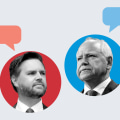As an expert in education policies, I have witnessed firsthand the impact these policies have on candidate campaigns in Southeast Texas. Education is a crucial aspect of any society, and it plays a significant role in shaping the future of a community. Therefore, it is no surprise that education policies are a hot topic during candidate campaigns.
The Importance of Education Policies
Education policies refer to the rules and regulations set by the government to govern the education system. These policies cover various aspects such as curriculum, funding, teacher training, and school infrastructure.They have a direct impact on the quality of education provided to students and ultimately shape the future of the community. In Southeast Texas, education policies have been a major concern for both candidates and voters. The region has faced challenges such as high dropout rates, inadequate funding, and disparities in educational opportunities. As a result, candidates have been under pressure to address these issues and propose solutions that will improve the education system.
The Role of Candidates in Addressing Education Policies
Candidates play a crucial role in shaping education policies. They are responsible for understanding the needs and concerns of their constituents and proposing solutions that will address these issues.During their campaigns, candidates have the opportunity to engage with voters and understand their perspectives on education policies. One way candidates address education policies is by including them in their campaign platforms. They outline their plans for improving the education system and how they intend to achieve them if elected. This allows voters to understand where each candidate stands on education policies and make an informed decision when casting their vote. Candidates also use various platforms such as debates, town hall meetings, and social media to discuss education policies with voters. These interactions provide an opportunity for candidates to listen to the concerns of the community and address them directly.
It also allows them to explain their stance on education policies and how they plan to implement them.
The Impact of Education Policies on Candidate Campaigns
Education policies can have a significant impact on candidate campaigns. In Southeast Texas, where education is a top concern for voters, candidates who have a strong stance on education policies are more likely to gain support from the community. Voters want to see candidates who are committed to improving the education system and addressing the challenges faced by students and teachers. On the other hand, candidates who do not have a clear plan for education policies may face challenges in gaining support from voters. In a region where education is a top priority, candidates who do not prioritize education policies may be seen as out of touch with the needs of the community. Moreover, education policies can also be a deciding factor for voters when choosing between candidates.If two candidates have similar stances on other issues, their stance on education policies may sway voters one way or another. Therefore, it is crucial for candidates to have a strong understanding of education policies and how they can impact their campaigns.
The Challenges Faced by Candidates in Addressing Education Policies
While addressing education policies may seem like a straightforward task, candidates in Southeast Texas face several challenges in doing so. One of the main challenges is the lack of funding for education. Many schools in the region are underfunded, which makes it difficult for candidates to propose solutions that require additional funding. Another challenge is the disparities in educational opportunities.In Southeast Texas, there are significant differences in the quality of education provided in different areas. Candidates must address these disparities and propose solutions that will ensure equal access to quality education for all students. Moreover, candidates also face challenges in addressing the concerns of different stakeholders in the education system. Teachers, parents, and students may have different perspectives on education policies, and candidates must find a way to address these concerns and propose solutions that will benefit everyone.
The Future of Education Policies in Southeast Texas
As candidates in Southeast Texas continue to address education policies during their campaigns, it is essential to look towards the future. The region has made significant progress in improving the education system, but there is still a long way to go.Candidates must work together with the community to find sustainable solutions that will have a lasting impact on the education system. Moreover, it is crucial for candidates to prioritize education policies even after the elections are over. Once elected, they must follow through on their promises and work towards implementing the proposed solutions. This will not only benefit the community but also show voters that their concerns are being heard and addressed.
In Conclusion
Candidates in Southeast Texas play a crucial role in shaping education policies. They must understand the needs and concerns of their constituents and propose solutions that will improve the education system.Education policies have a significant impact on candidate campaigns, and it is crucial for candidates to have a strong understanding of these policies and how they can address them. As we look towards the future, it is essential for candidates to continue prioritizing education policies and working towards creating a better future for students in Southeast Texas.






